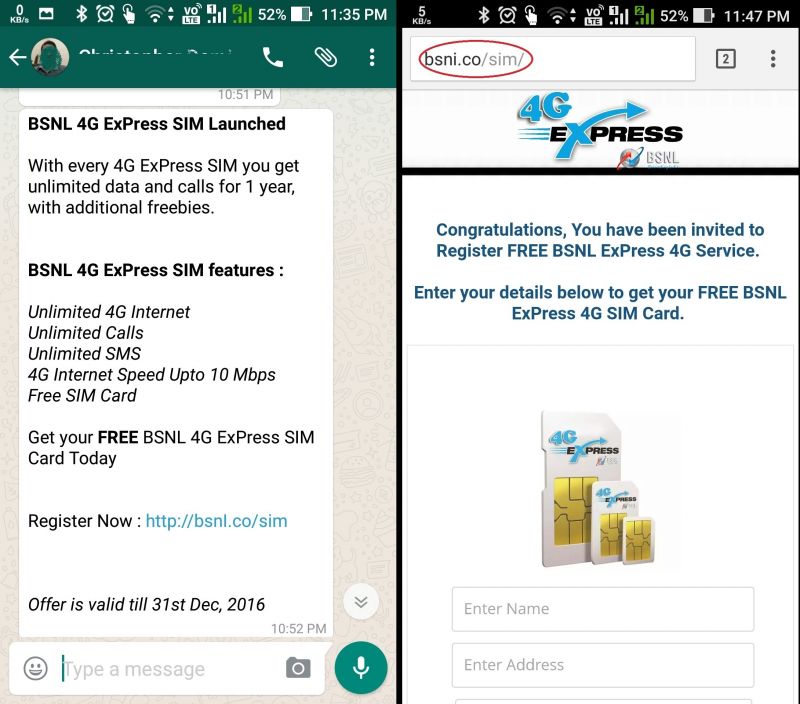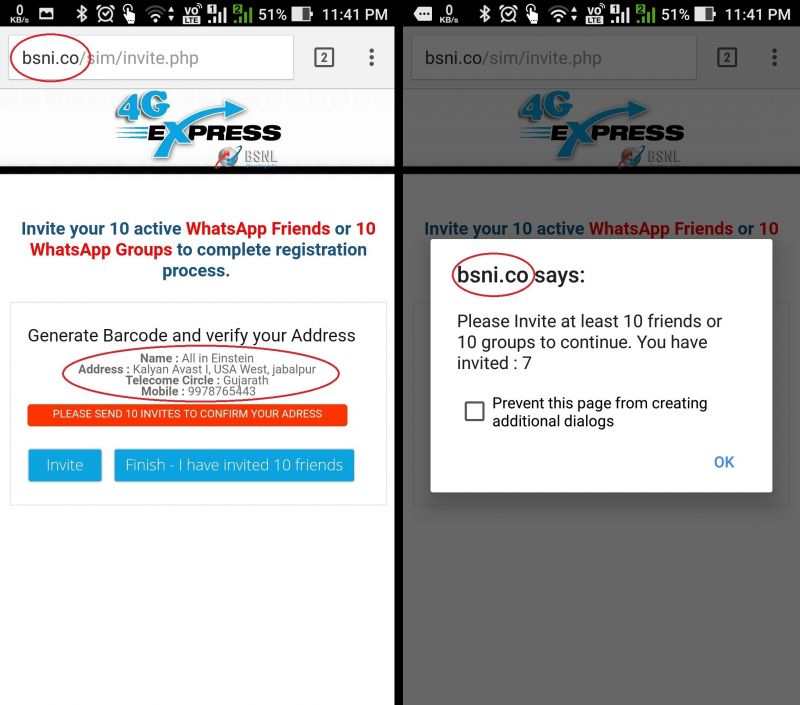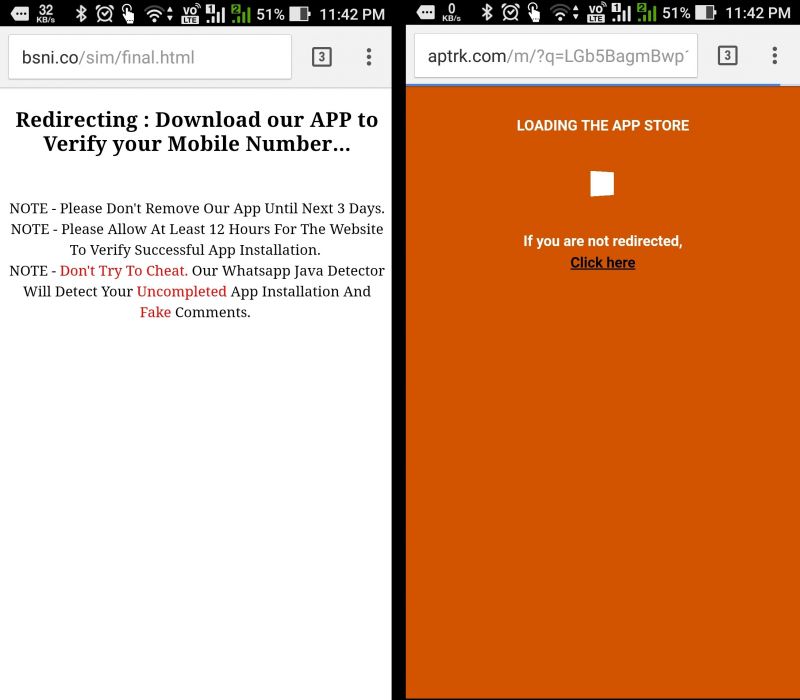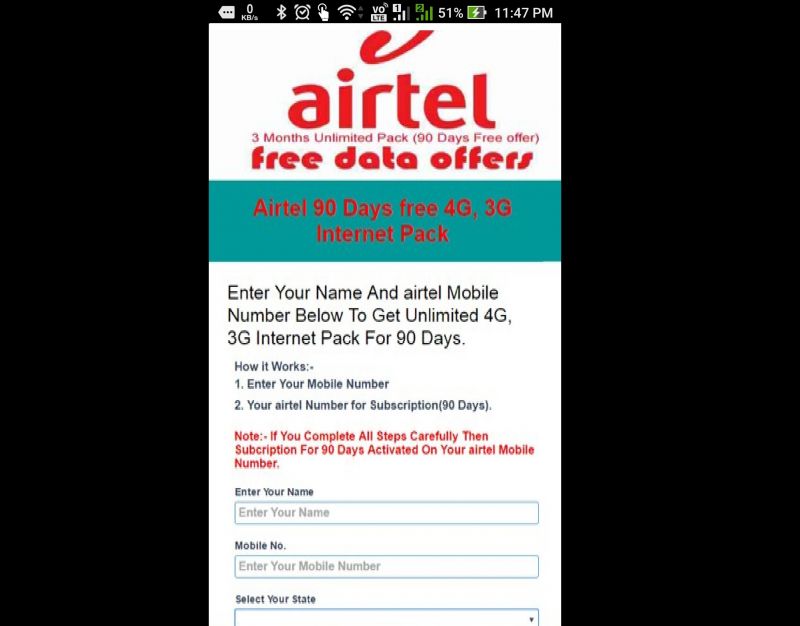New WhatsApp scam: One year free 4G data, voice calls from BSNL'
A message is being circulated around that reads that BSNL is offering free 4G unlimited data and voice calls for a period of one year.

A new WhatsApp scam has been floating around and users are warned against clicking on the link inside the message. ‘BSNL is offering free 4G unlimited data and voice calls for a period of one year,’ reads a message on WhatsApp — make sure you don’t click on the link in the message, or forward it to anyone. The hoax message is a huge scam and someone out there is making money from it, apart from mining for personal information.
Ever since the country has got the taste of free 4G internet with Reliance Jio, other telecom operators are facing the heat, trying their level best to match rates and offer irresistible deals to make sure customers stay back. While top telecom players in India are offering irresistible data plans at cheaper rates, they still cannot beat the Jio offer, which is absolutely free for another four months (till March 31, 2017).
Taking advantage of this ‘data offer’ battle, scamsters prey on unsuspecting victims to make some dough. A new scam has emerged where a message being circulated around reads that BSNL is offering free 4G unlimited data and voice calls for a period of one year. Please note that the message is a hoax and a big scam to make money and mine for personal information.
The message reads that the top telecom player is now offering unlimited data and voice calls and in order to enrol yourself, you need to apply online and generate a bar code — similar to how Jio worked. The message further reads that one can get a free SIM card with 10Mbps speeds on 4G along with free voice calls and SMS for one whole year with BSNL 4G ExPress SIM. The message is a hoax, features a big scam and the link in the message and does not lead you to the BSNL website. In fact, if you closely look at the url in the message, the ‘L’ in ‘BSNL’ is a capital ‘i’m which takes you to the ‘bsni.co’website.
Once you hit the link, you will be taken to the browser which reads ‘http://bsni.co/sim/’ (check the URL in the browser’s address bar). On the page, you will see the ad for the 4G ExPress SIM card and you will be asked to enter details such as name, address, phone number and state you live in. Surprisingly, as a test, we chose Gujarat, which had a spelling mistake in it (see screenshot).
The message on the screen reads all the information to lure you into the scam. The next screen will then inform you that you need to generate a bar code and verify your address, but in order to proceed you would need to send the invitation to 10 more friends or groups on WhatsApp. After sending the message to 10 groups (the website checks the count and won’t allow you to bluff), the next screen asks you to install an app to verify the mobile number you provided. The message also tells you not to uninstall the app for three days and to allow the website at least 12 hours to verify the app installation. Clicking on the link will take you to the Google Play Store and you would have to install the app from there. Further on, nothing happens and you finally find out that you were duped. Although you did not pay for anything, you have successfully sent the scamster all your details such as name, number and address.
The scamster will collect this data and sell the database in the online market, to sales companies and many other services for a hefty sum. Apart from this, the scamster has cleverly designed the website which will also show ads, automatically click on a few links in the background and make you download a few apps. He has also managed to monetise on the ads and apps that get downloaded to your smartphone and is now smiling away to the bank.
A few days ago, a similar scam with Airtel offering free unlimited data for three months had been doing the rounds. The scam is similar to this one, but the BSNL message looks more authentic.
These types of scams are not new anymore. But what one needs to know is to be careful with such messages that seem too good to be true. Before hitting on such links, make sure you know the sender. Research online for a similar offer or information to make sure it is genuine. And if you find it fishy, you’d rather ignore or delete the message. Don’t forward such messages to anyone.




